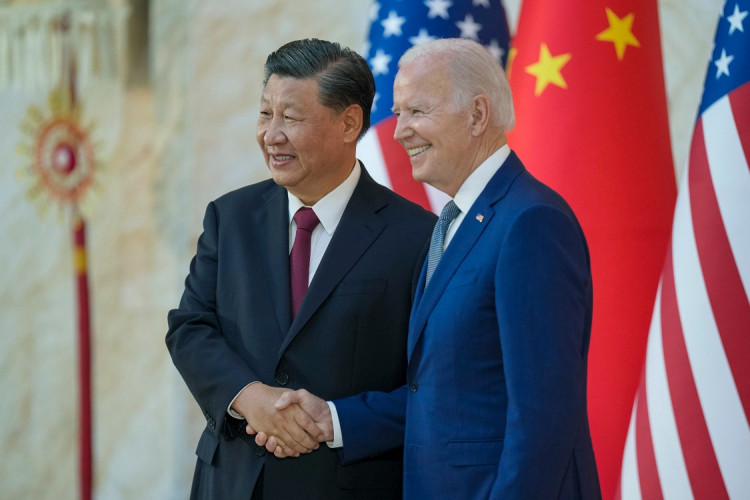Following months of tension over Taiwan and other problems, Presidents Joe Biden and Xi Jinping shook hands in front of their respective flags before beginning a long-awaited sit-down on the Indonesian island of Bali ahead of a Group of 20 summit.
In their first meeting in more than three years, Biden and Xi expressed optimism on Monday, Nov. 14, that the United States and China can manage their growing differences and prevent conflict.
The world has "come to a crossroads," Xi, China's most powerful leader in decades who recently won an unprecedented third term, said. At a table opposite Xi, Biden said that Beijing and Washington "share responsibility" for demonstrating to the rest of the world that they can "manage our differences, prevent competition from becoming conflict."
"So we need to chart the right course for the China-U.S. relationship," China's President said. "We need to find the right direction for the bilateral relationship going forward and elevate the relationship."
He also said, "The world expects that China and the United States will properly handle the relationship." He continued by saying he was looking forward to collaborating with Biden to put the relationship back on track.
Despite the positive public pronouncements, both countries are growing wary of one another. The U.S. is concerned that China has accelerated its timeframe for seizing Taiwan. Prior to the meeting, U.S. officials stated that Biden sought to establish "guardrails" in the US's relationship with China and to determine how to avoid drawing "red lines" that may bring the two greatest economies in the world to blows.
Biden had expressed to China his national security concerns regarding limits on critical US technologies and had voiced doubts about the dependability of Chinese supply networks for commodities like minerals, according to U.S. Treasury Secretary Janet Yellen.
The most delicate issue involves Taiwan, a self-governing democracy that China claims. While China has stepped up its threats to seize control of the island, the United States has been increasing its support for Taiwan. China responded to House Speaker Nancy Pelosi's visit to Taipei in August by holding significant military exercises.
Biden met with South Korean President Yoon Suk-yeol and Japanese Prime Minister Fumio Kishida on the eve of his talks with Xi, outside of a Southeast Asian summit in Cambodia. The three leaders urged for "peace and stability" in the Taiwan Strait. In addition, Biden is anticipated to put pressure on China to restrain North Korea, an ally, after a record-breaking string of missile tests stoked worries that Pyongyang will soon conduct its seventh nuclear test.





